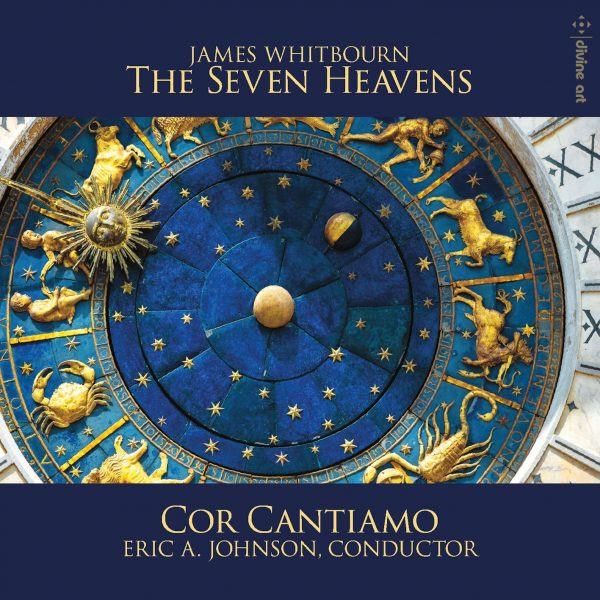American Record Guide
I have admired James Whitbourn, I have admired Cor Cantiamo, and I really admire how they’ve have come together in this program. The Seven Heavens depicts the life of CS Lewis through medieval imagery of the planets; an evocative picture of the Christian writer who was a medievalist at heart. The ancient Hymns of Orpheus in English translation supply most of the libretto. Bits of Shelley, Shakespeare, and the Bible contribute the rest. The work was commissioned by the Belfast Phil¬harmonic Choir for a concert shared with the Ulster Orchestra in their 2014-15 season. Seven Heavens is heard here in the chamber version Whitbourn crafted after that premiere. What makes his music work so well is that the planetary theme and the classical poetry come together to inspire vivid descriptions of the writer’s life. Lewis’s uncomfortable conversion to Christianity can be heard in the rumbling and clanging of Mars. In Mercury, he finds his authentic voice as a writer. (“Give graceful speech and me memory’s increase.”) Lewis thought Jupiter was “the best planet” (he was born under its sign), and the music reminds us that jovial and Jupiter share the same etymological root. Venus is a bittersweet affair recalling the tenderness of love and the aching sadness Lewis felt when his wife died of cancer so soon into their marriage. Saturn is suitably dark and funereal, but light dawns in final interlude with the arrival of the “venerable sun”. I was moved by both the score and the emotional depth of the poetry. “Men must endure their going hence”, writes Shakespeare in Lear. It’s in the libretto, it’s on Lewis’s gravestone, and it’s all over this music.
I liked the other works as well. ‘Ada’ is another biographical portrait; this time of Ada Lovelance, Lord Byron’s only legitimate child. She was, by all accounts, a smart, formidable woman and she inspires some smart, formidable music that’s rendered with tenderness by obbligato violin and the choir. Most moving of all is ‘Eternal Rest’, composed in affectionate tribute to Elizabeth the Queen Mother when she passed away in 2002. The composer’s personable notes and the inclusion of texts clinch the deal on an interesting and rewarding release.
@divineartrecordingsgroup
A First Inversion Company
Registered Office:
176-178 Pontefract Road, Cudworth, Barnsley S72 8BE
+44 1226 596703
Fort Worth, TX 76110
+1.682.233.4978












